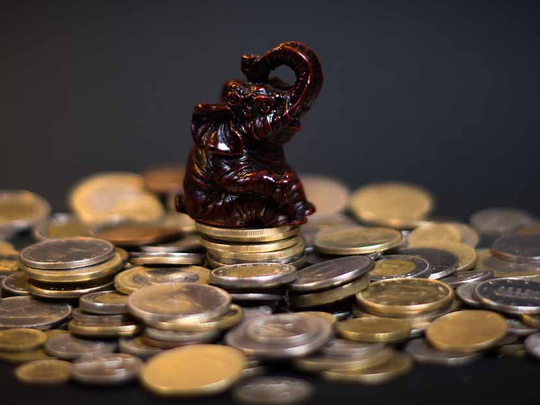
With the exchange rate having improved to 17.7 rupees to the dirham as compared to 17.3 in September, Indian expats are incentivised to send more money home this week than previous Diwalis.
With nearly 150 money exchanges in the UAE, in addition to banks, it’s no wonder that remittance is a thriving business. Besides physically going to an exchange house, there are several other ways to send money home.
Banks
Considered the most secure way of transferring money, bank transfers remit money straight to the recipient’s account. Although it requires both parties to have accounts, and each bank in the UAE has its own partners in India, the service is quick and effective. Transactions can be
carried out online and are completed in about two working days, but may be instant if both accounts are held with the same bank. However, costs can vary significantly depending on the banks. Both sending and receiving banks charge transaction fees, and a payment of Dh2,000 may incur costs as high as Dh150. On the positive side, online transfers are cheaper than those at the branch.
Credit cards
With the digital ecosystem well entrenched in the UAE, many financial institutions have linked their credit card and remittance solutions. Not only is it an easy solution for those who hold credit cards for their many benefits, it also helps employees whose salaries have not yet been transferred. An example is RAK Bank’s Remit Now, Pay Later service, which sees accounts in India credited within a minute. The service, available to RAK Bank cardholders using RAKMoneyTransfer, offers rates comparable to exchange houses (up to Dh15) 24x7. Depending on the type of card they hold, customers can instantly transfer up to Dh7,500 to 27 banks, while availing of an interest-free period of 55 days on the amount. Not all banks offer similar interest-free periods, however, so unwary customers may end up with a heavy bill.
Exchange services
At Diwali, people often want to remember friends and well-wishers who may not have a bank account. For these recipients, money transfer services such as MoneyGram and Western Union are a good choice. With Western Union, for instance, you can send money online through your account or credit card, or via a branch, and the beneficiary simply picks up the money in cash at a Western Union location in a few minutes’ time by presenting a valid ID and the Money Transfer Control Number, or sees the amount credited to a bank account within a couple of days.
Mobile wallets
The newest way to send money home is by using a digital wallet. At the recent Gitex Technology Week, digital payments firm Trriple launched its new m-wallet. In addition to paying for goods and services, topping up mobile credit and make peer-to-peer transfers, the UAE financial technology start-up allows users to send cross-border remittances too.
“UAE residents sending remittances no longer want to stand in long queues holding cash, pay high fees, or wait days for transfers to clear,” says Paolo Gagliardi, CEO of Trriple. “An m-wallet and digital payments can cut through the delays, and enable people to send money instantly, securely, and from the convenience of their mobile devices.”











